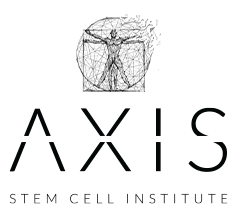When you learn about the different systems in your body in school, it’s common to think of them as separate, distinct islands. However, this isn’t always the case. Your body’s different systems have a lot of complex interconnectedness. One area where this is most obvious is the relationship between your gut and your brain. You experience this every time you get butterflies in your stomach or have a gut feeling about something. However, it goes beyond just metaphors. Problems like nausea, loss of appetite, or stomach knots can be caused by stress responses, meaning your gut is directly tied to your emotional well being. Things like hormones and chemical signaling keep this bi-directional relationship alive and well, and it can be an extremely important one. Neglecting one side of this relationship can greatly affect the other, so it’s important to know how to optimize this superhighway for your best health.
Why is the Gut-Brain Superhighway important?
A huge amount of nerve cells connect the central nervous system to your gastrointestinal tract. This is because your brain is constantly monitoring your digestive functions by adjusting blood flow, metabolism, and intestinal mucus. In turn, your gut provides feedback about levels of fullness and whether you’ve ingested any dangerous cells.
It’s believed that this relationship is key to the production of neurotransmitters like dopamine and serotonin. These are essential to brain health and certain psychiatric conditions. In some studies performed on mice, an absence of gut microbes was associated with poor gut function, memory dysfunction, inflammation, higher pain levels, and altered expressions of neurotransmitters.
Although this can seem scary, the good news is that poor gut health can be easily addressed through a healthy diet and some lifestyle changes. Here are some ways to optimize your gut health to ensure your brain works the best it can.
Avoid gut irritation and inflammation
There are a lot of foods that are known to produce irritation in the gut, so it’s important to limit or remove these offenders. This might include cutting out alcohol, processed foods, and sugar, as well as limiting lifestyle factors like stress or taking certain medications. Dairy and gluten often produce irritation and increased inflammation and these foods can really wreak havoc on the gut lining, leading to chronic pain and illness. It’s important to eat a diet low in inflammatory foods like theses to ensure whole body wellness.
Heal your gut lining
Your small intestine has a protective lining that ensures the environment of your gut is ideal and protects it from the rest of the body (and vice versa!). This lining prevents things like food particles and bacteria from entering the blood stream, so it’s important to keep this lining healthy and robust. When the gut lining gets ill and inflamed, toxins can often pass through little openings in the wall of the intestine, causing illness. Eating whole, unprocessed foods that are high in fiber can be ideal, as well as protein and healthy fats. It is also very important to supplement a high-quality probiotic, with soil-based microbes to promote a healthy colony of gut flora, to protect the gut lining.
Help your gut microbes
Your gut has a complex ecosystem of microbes and bacteria that help digest and keep your gut healthy. It’s important that these cells have everything they need to function, meaning foods that are especially beneficial to them are important to include in your diet. Prebiotic foods like garlic, leeks, onion, and artichokes can help nourish your existing microbes. Probiotic-rich foods like sauerkraut, kefir, and kombucha can help further boost the number of microbes. Incorporating these foods into your diet can ensure the inhabitants of your gut are healthy and effective.
Schedule an Appointment
Optimizing your health can require a lot of steps, so it’s important to partner with whole-body health experts who can help guide you to the right lifestyle changes. At Axis Stem Cell Institute, we believe that a healthy lifestyle and regenerative medicine go hand-in-hand. To meet with our experts and learn more about a healthy, pain-free lifestyle, contact our Kirkland office by calling or filling out our online form.
